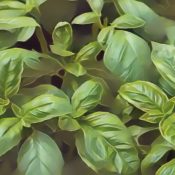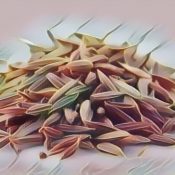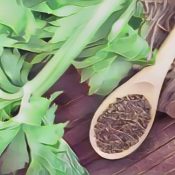Author: A Solitary Pagan
What is Death Witchcraft: Are there any rules in death witchcraft?
No rules can ever be enforced onto anyone’s path, though it goes without saying there are those people around who feel that they have the right to enforce their rules onto others. Having said this, with death witchcraft, it may be encouraged to respect both the dead and the living. The dead are not your slaves; they’re just as valuable as we are. Respect them, and they’ll ...
What is Death Witchcraft: Why Do We Perform Death Witchcraft?
As with any magical path, everyone practices for difference reasons. Some people have an intense fear and fascination with death, and they aim to find peace through this path. Others have experienced the deaths of loved ones, and they want to heal and aid the deceased. Some worship a death deity or work as a mortician, while others are in it for the power. Regardless of their reasoning, dea...
What is Death Witchcraft: How Does it Differentiate from Necromancy?
How Does it Differentiate from Necromancy? Necromancy comes from the Greek words nekrs (“dead body”) and mantea (“divination by means of”). Literally, it means speaking to the dead through divination. Most necromancers receive insights about the past, present, or future through the dead. Necromancy is part of death witchcraft, but it isn’t all of that path. Death witc...
What is Death Witchcraft:
Death witchcraft can be defined as working with and honoring spirits of the dead (ghosts, ancestors) as well as the power of death itself (endings, resurrections). Death witches reflect upon the concept of death, come to terms with their own death, and work through spiritual deaths in our lives. We also communicate with the dead regularly. Many of us heal and help the dead, and in return, they ai...
Unlocking the Magic: A Solitary Pagan Witch’s Guide to Spell Work
So, you’re curious about casting spells solo as a pagan witch? Let me tell you, solitary spellwork is one of the most magical ways to connect with your own energy and the world around you—no coven required. First up, I like to set the mood. This could mean lighting a candle, burning a little incense, or playing soft music. Creating that sacred space is totally personal—do what feels magical for yo...
The Enigmatic Life of a Solitary Witch
Deep in the heart of an ancient forest, whispers of magic entwine with the wind. She is a solitary witch, a weaver of spells and secrets, living in harmony with the whispers of the wild. Her home, a quaint cottage cloaked in ivy, breathes with the pulse of the earth. Inside, shelves overflow with jars of herbs, each one holding a story, each one a piece of her soul. With the dawn, she gathers dew...
Poppy Power: Magic, Myths & More!
Poppies, with their vibrant blooms and fleeting beauty, have captivated humankind for centuries. Native to the Old World, these members of the Papaveraceae family are instantly recognizable by their papery petals and distinctive seed pods. From delicate pastels to fiery reds, poppies paint fields and meadows with splashes of color, their presence signifying the arrival of warmer days. Beyond thei...
Kitchen Herbs for Witches: Anise
Planet: Mercury/Jupiter Element: Air Main magickal uses: Contacting other planes, divination, love, passion, preventing nightmares, protection, psychic development, psychic protection, purification Other magickal uses: Clairvoyance, cleansing, consecration, fertility, gain, good luck, happiness, money, weddings Lore: Paul Beyerl attributes anise to Mercury and Apollo, and suggests that it be part...
Kitchen Herbs for Witches: Basil
Planet: Mars Element: Fire Main magickal uses: Consecration, divination (esp. about love), exorcism, fertility, fidelity, good luck, happiness, harmony, love, money, passion, peace, prosperity, protection, psychic development, psychic protection, purification, strength, success, tranquility Other magickal uses: Clairvoyance, commanding, courage, dragons, grieving, hatred, honesty, Imbolc, initiat...
Kitchen Herbs for Witches: Caraway
Planet: Mercury Element: Air Main magickal uses: Fidelity, love, memory, passion, preventing theft, protection, retention, sensuality Other magickal uses: consecration, fertility, gain, honesty, keeping secrets, peace of mind, weddings
Kitchen Herbs for Witches: Celery seed
Planet: Saturn/Mercury Element: Earth Main magickal uses: Psychic development Other magickal uses: Beauty, divination, fertility, love, passion
Kitchen Herbs for Witches: Cinnamon
Planet: Mercury/Sun/Mars/Uranus (take your pick!) Element: Air/Fire Main magickal uses: Clairvoyance, consecration, divination, energy, good luck, love, money, passion, peace, prosperity, protection, psychic development, success Other magickal uses: communication, happiness, harmony, healing, inspiration, knowledge, meditation, purification, spirituality, tranquility, wisdom Lore: Paul Beyerl sugg...













